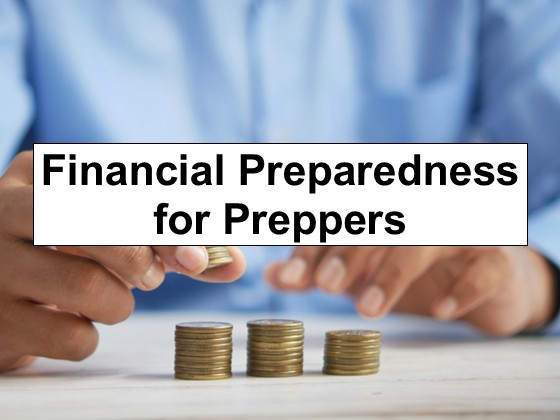Numerous examples of worldwide instability may have made you especially grateful for your preparedness-focused mindset lately while encouraging you to ensure you have your financial bases covered. What should you do to protect your finances if the economy collapses?
Have an Emergency Fund
Review your finances and calculate how much your monthly essentials cost. Then, focus on building or increasing your contributions to an emergency fund. The amount you should put into it varies depending on you and your family’s circumstances. For example, if there are young kids in the home or someone lives with a significant disability, those realities may make the average expenses higher.
Keeping your emergency fund in more than one format is also wise. A high-yield savings account can help you grow the deposited amounts while retaining easy, quick access to the money. However, stashing some cash in a safe offers additional protection, especially if ATM networks and card readers go down.
An emergency fund is also an excellent preparedness strategy if your circumstances change for the worse, regardless of what happens with the economy. A 2025 study showed 46% of respondents felt very worried about their ability to cover basic expenses after a primary income loss. Even if the economy stays more stable than you anticipate over the short to medium term, job losses can occur anytime. Building an emergency fund gives you the resources to cover the essentials during challenging periods.
Diversify Your Investments
A diversified portfolio may be more likely to weather economic storms than a concentrated one because it spreads your investments. In addition to allocating your money across different forms — such as bonds and stocks — you should have companies of various sizes, types and industries represented.
Now is also an excellent time to visit your financial adviser or establish a relationship with one for the first time. According to a 2024 investor survey, 36% of affluent individuals found it difficult to monitor and manage diversified portfolios. Sixty-three percent depended on their advisers, banks and insurers for wealth management guidance.
Be honest with your financial professionals about your risk tolerance, goals and family circumstances. Discuss details of your personal life that may impact your willingness to make specific investments, too. Those particulars will help these professionals give you the most applicable advice.
Reduce Financial Losses for Your Business
If you own or operate a business, your preparedness strategies should account for it. One option is to regionalize your supply chain to mitigate the potential effects of economic instability in an area where many key suppliers operate. Additionally, finding partners who are geographically closer to you could address issues caused by unstable transportation infrastructure or natural disasters.
Assess which equipment you need to protect operations if the worst happens. A robust commercial generator is an excellent starting point, especially considering the costliness of unexpected outages. In one example, Delta lost $150 million due to a five-hour operations center power outage.
The potential extent of the damage varies depending on your company’s size and focus. Take time to inventory what and how much you would lose if the power went out. Consider material losses such as spoiled perishable goods and operational challenges that temporarily prevent customers from doing business with you.
You can also minimize financial losses and improve stability by hiring an expert to help you identify and curb unnecessary spending while finding ways to save. The better your financial position immediately before and during a crisis, the more flexibility you will enjoy to make the best of uncertain times.
Stock up Sensibly Without Hoarding
Some people who watch economic fluctuations cannot help but notice a healthy economy is sometimes at odds with sustainability. When people feel confident in their spending power, they are more likely to buy frivolous things, increase their carbon footprints through leisure travel and prioritize luxurious consumables rather than simple joys that don’t require buying.
However, some experts advocate for a shift toward doughnut economics. This approach incorporates the well-being of people and the planet as sustainable business indicators rather than solely focusing on growth. One goal is to collectively elevate individuals’ life experiences without making things harder for other living beings.
An easy way to apply this principle in your daily life when prepping is to purchase and store things your family would need during severe economic downturns gradually. However, be realistic with those consumption decisions and don’t stock up to the point where you prevent other people from getting those essentials, too.
A full pantry can be an immense relief during economic uncertainties, but you should be mindful of how quickly you can use specific things. Pay attention to expiration dates and strategize by finding the most nutritious shelf-stable foods to keep.
Be careful of impulse buying, too. Heightened emotions might convince you now is the best time to head to the nearest mass-market retailer and spend thousands of dollars on things you wouldn’t want to live without. However, you can almost certainly make your money go further by waiting for sales, using coupons and browsing at discount stores to find the best deals.
Thoughtful Strategies Increase Readiness
In addition to applying these tips, pause and take a breath before you feel tempted to act hastily. Economic instability can be stressful, but you’ll be more resilient if you can keep your stress levels low and prevent fear-driven responses.

Leave a Reply